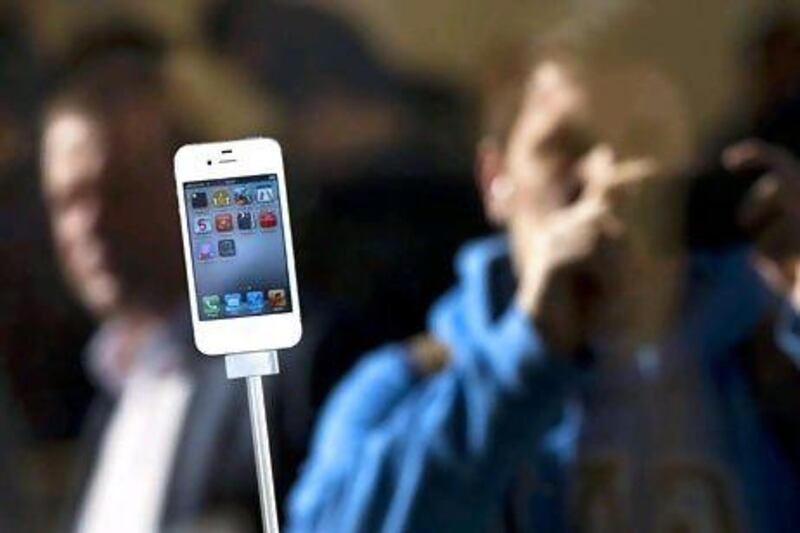Shares worth billions of dollars changed hands yesterday in a major realignment of the smartphone industry prompted by Apple's court victory over Samsung in the United States.
Samsung suffered its biggest share-price drop in almost four years, with more than $12 billion wiped off its market value.
The drop came amid fears that some Samsung phones may be banned, after the South Korean company was ordered on Friday to pay Apple more than US$1 billion (Dh3.67bn) in damages for infringing six patents.
Apple, Nokia and Research in Motion (RIM), the firm behind BlackBerry, rose in early trading yesterday.
Shares in Microsoft - which has entered the smartphone fray with its Windows Phone operating system - were also up in pre-market trading.
Many Samsung devices run on Google's Android operating system, and analysts said the court ruling could have implications for other handset manufacturers that use the platform. Google's Nasdaq-listed shares were down by more than 2 per cent in early trading yesterday.
Matthew Reed, a senior analyst at Informa Telecoms & Media in Dubai, said Apple's court victory marked a realignment in the fortunes of the various smartphone brands.
"It could lead to a rebalancing of the market shares of the different operating systems," he said.
"Clearly the ruling in the US is a victory for Apple and a problem for Samsung. In some ways this could benefit Microsoft and the Windows Phone, and the device makers that are planning to use that, and also RIM."
Nokia, which last year signed an agreement with Microsoft to use Windows Phone software in its high-end smartphones, also stood to benefit from the court ruling, Mr Reed said.
In Helsinki, Nokia was trading up 7 per cent at about €2.67 yesterday afternoon.
That represents a much-needed boost for the once-dominant company, which has lost much ground to Samsung and Apple.
Samsung currently dominates the global smartphone market, with a 21.6 per cent share of total handset sales, according to figures by Gartner.
But Friday's court ruling threatens Samsung's standing in the global $220bn smartphone market.
Apple's request for a ban on the US sales of some Samsung devices will be heard in US courts next month.
"It could be worse than this if Samsung are blocked from being sold in the US," Mr Reed said. "It's a blow for Samsung, and it's a bit of a knock for Android as well.
"More broadly, it does set down a marker, in that smartphone makers are going to have to work harder to differentiate their products, to come up with something different from Apple."
Maha Abouelenein, Google's head of communications for the Middle East and North Africa, said that the court decision did not relate to the overall Android system.
"The court of appeals will review both infringement and the validity of the patent claims. Most of these don't relate to the core Android operating system and several are being re-examined by the US patent office," she said.
PK Gulati, a prominent technology investor based in Dubai, said that the US court decision did not bode well for smaller technology companies because many creators of smartphone applications could potentially infringe on Apple's patents.
"I don't think anyone feels happy by this verdict, except probably Apple," said Mr Gulati. "It will not be innovation-friendly. I know at least 100 apps that actually use the same [touch-screen] gestures as Apple does."
Consumers in the UAE and wider region would not be affected by the court ruling, a spokesman for Samsung said.
"The verdict is only concerning [the] US market. Other markets including the Middle East region will not be affected," he said.
The US verdict affects patents on a range of Samsung products, including some Galaxy smartphones and its Galaxy 10 tablet.
The verdict "should not be viewed as a win for Apple, but as a loss for the American consumer", Samsung said. "It will lead to fewer choices, less innovation, and potentially higher prices."





